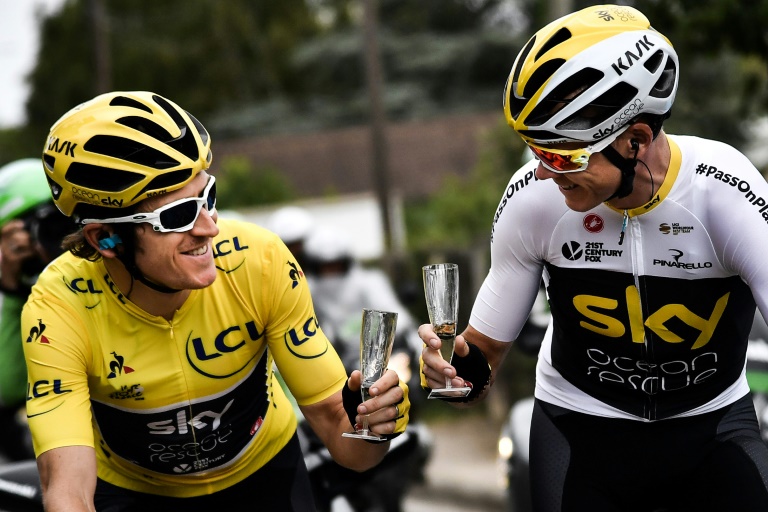
Team Sky has secured the backing of Britain's richest man Jim Ratcliffe and will begin racing as Team Ineos in May, the cycling team announced on Tuesday.
The British-registered outfit had been seeking new funding after media company Sky announced in December it would end its ownership and sponsorship at the end of 2019.
Team Sky have won six Tour de France titles in the past seven years and racked up eight Grand Tour victories in total but have also been the focus of controversy for using special exemptions to administer drugs that can enhance performance.
"Sky and 21st Century Fox have agreed the sale of Team Sky to Ineos," said a statement from Team Sky, adding that the chemicals giant would continue to fund the current team in full, honouring all existing commitments to riders, staff and partners.
"Cycling is a great endurance and tactical sport that is gaining ever more popularity around the world," said Ineos founder Ratcliffe, who has an estimated fortune of £21 billion ($28 billion).
"Ineos is delighted to take on the responsibility of running such a professional team," he added.
Team principal Dave Brailsford hailed the announcement as "great news for the team, for cycling fans, and for the sport more widely".
"It ends the uncertainty around the team and the speed with which it has happened represents a huge vote of confidence in our future," he added.
"In Sir Jim Ratcliffe and Ineos, I know that we have found the right partner whose vision, passion and pioneering spirit can lead us to even greater success on and off the bike. It heralds the start of a hugely exciting new chapter for us all as Team Ineos."
Bradley Wiggins became Britain's first Tour de France champion in 2012 before Chris Froome won four Tour de France titles and Geraint Thomas became Sky's third winner of cycling's landmark event last year.
'Marginal gains'
Deep-pocketed Sky are known for Brailsford's meticulous and innovative application of 'marginal gains', the theory that many small advantages in areas as diverse as wind resistance, diet and sleep quality can add up to a significant improvement in performance.
However, Sky's image was clouded in the controversy over so-called therapeutic use exemptions, after a damning British parliamentary report said the team crossed an "ethical line" by using the loophole to administer drugs to enhance performance.
The Commons digital, culture, media and sport committee report said MPs believed that triamcinolone, used to treat asthma, "was being used to prepare Wiggins, and possibly other riders supporting him, for the Tour de France".
Sky were also in the crosshairs for a suspected anti-doping violation over a mystery package reportedly destined for Wiggins in 2011, although a UK Anti-Doping investigation concluded with no charges brought.
Sky was then caught in a long-running doping controversy that began when Froome returned an adverse doping test, for elevated levels of the asthma medication salbutamol, on his way to victory in the Vuelta a Espana in 2017. He was cleared 10 months later.
Team Sky also have plenty of detractors within cycling for tactics that many believe stifle racing.
Their superior budget has allowed them to employ riders who would be leaders elsewhere in a support capacity and effectively shut down attacks in the biggest races, something that has proved unpopular with many, particularly in the Tour de France.
Sky began its involvement with the sport in 2008, when it successfully teamed up with British Cycling to increase participation and support the country's elite riders, who became a major force at world events including the Olympic Games


